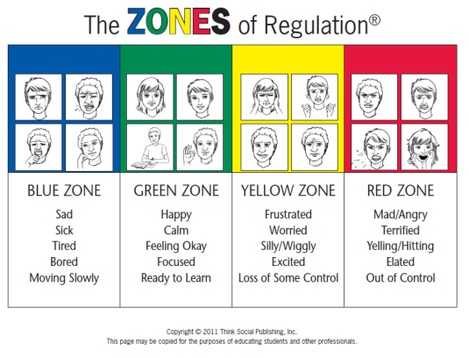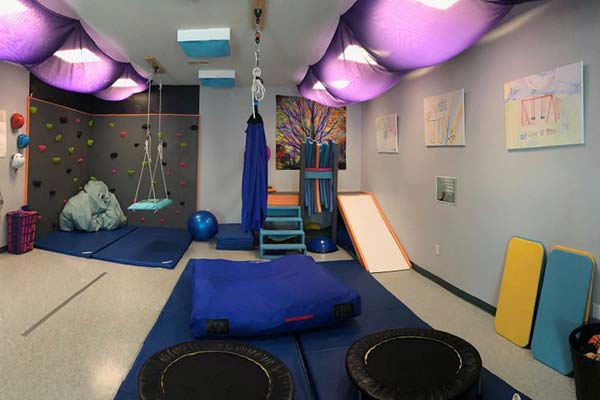Calo Occupational Therapy Scope of Practice
Occupational Therapy involves the therapeutic use of meaningful activities to promote well-being in physical and mental health. At Calo, Occupational Therapy focuses on the factors affecting participation in all of our students’ daily routines, including:
- Education
- Play
- Social skills
- Hygiene & Self-care
- Sleep
Developmental trauma can impact a student’s sense of self, ability to self-regulate emotions, modulation of sensory information from the environment, and the executive functioning skills needed to engage in these occupations of childhood. Occupational Therapy practitioners have specialized training in task analysis and environmental modification to optimize the child-environment-occupation fit in a student’s home, school, and community settings.
Occupational Therapy Assessment:
Every Calo Preteen receives an Occupational Therapy screening and evaluation within the first month of enrollment to determine areas where a student may need additional support or individual intervention.
The Occupational Therapy department collaborates with all members of the treatment team (academics, residential, neurotherapy, family/individual therapy, health services, animal-assisted therapy) to identify and address individual needs.
Occupational Therapy Intervention:
Therapeutic interventions are implemented at a group and individual level utilizing clinical reasoning and evidence-based practice and may include the following approaches:
- Weekly OT group activities emphasizing play, social skills, frustration tolerance, attention to task, mindfulness, and fine motor skills. Typical OT groups may consist of completing a craft, learning cooking skills, teambuilding games, or learning regulation strategies
- Individualized OT to maximize visual-motor, fine motor, gross motor, sensory modulation, or body awareness skills while using a play-based approach in the OT sensory gym
- Hygiene supports in collaboration with residential departments
- Therapeutic Listening®
- Zones of Regulation Curriculum
- DDP: Use of PACE in practice
- Integrated sensory supports for regulation
Sensory Regulation Supports:
Sensory-based supports can help a student regain a sense of safety and are able to impact regulation states in the moment. Using the Zones of Regulation assists students in understanding and identifying these regulation states in their bodies, and students complete regular Zone check-ins throughout the day.

A few of the ways that sensory supports are integrated throughout the Calo Preteen program include:
- Sensory Regulation Backpacks:
Each team has a backpack that includes tools such as fidget items, Theraputty, noise-reducing headphones, body sock, exercise sheets, and an activity folder. Each student also completes a card located in this backpack identifying regulation strategies they feel are personally helpful for them to help staff get to know them and meet these needs. - Music:
Teams have a music player and speaker that staff can use to help energize or lower rhythms. Music can have a powerful impact on mood and regulation. - Movement Breaks:
Opportunities for physical activity and movement are incorporated throughout a student’s day, whether it be a canine walk, time spent playing outside, recess, or short breaks. - Classroom Supports:
Alternative seating (wobble stools, rocker chairs, balance boards), fidgets, noise-reducing headphones, and weighted lap pads are available within the intermediate school - Structured Schedule:
Predictability offers a sense of safety and assists students to transition from one activity to the next. - Individual Supports:
Depending on individual needs, some students trial and explore use of a weighted blanket, compression shirt, weighted vest, therapressure brush, or a specialized sensory diet.
Additional information to note:
At Calo Preteens, therapeutic evaluation and intervention are provided by a state licensed and national board-certified Occupational Therapist (OT). The department is also supported by a trained Occupational Therapy Aide.
- A physician order for Occupational Therapy services is established as needed.
- Students who come to Calo with OT listed in their IEP will continue to have these goals addressed.
- Financial responsibility for Occupational Therapy is included in the standard rate; Occupational Therapy is not an additional cost nor will it be billed to families as such.

